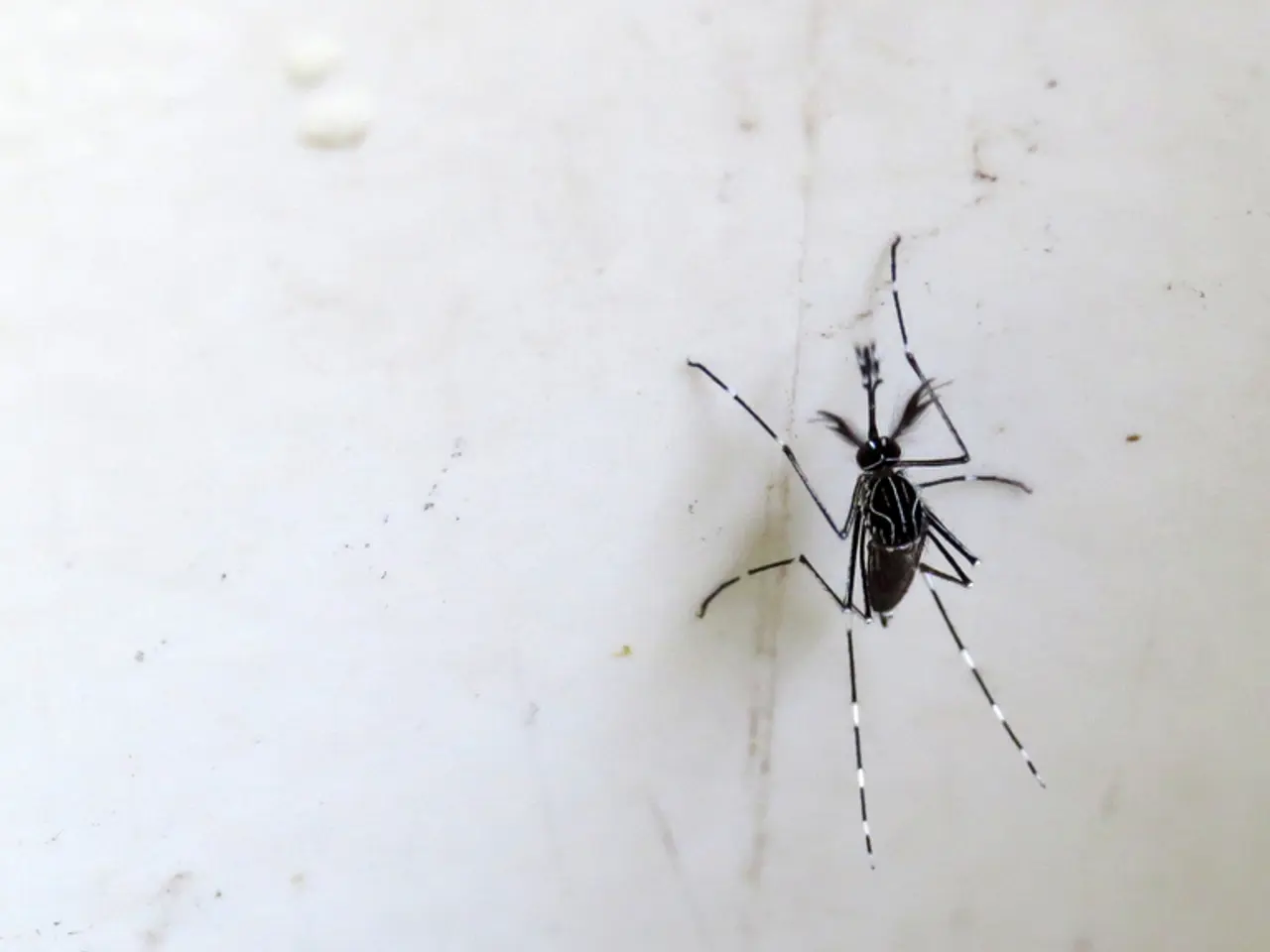Strategies for Effective Mosquito Repellent Measures
In the ongoing battle against mosquitoes, understanding the different types of repellents available is essential for staying bite-free. Here's a breakdown of various mosquito repellents, their effectiveness, and how long they last per application.
DEET, Diethyltoluamide, remains the gold standard repellent. With a high effectiveness, DEET provides several hours (often 6+ hours) of protection against mosquitoes. It's the go-to choice for reliable, long-lasting protection, particularly in high-risk areas or where vector-borne diseases are a concern. However, DEET can cause eye irritation and allergic skin reactions.
Lemon eucalyptus oil, when used at sufficiently high concentrations (30-40%), offers protection almost as effective as DEET, providing up to about 7 hours of protection. It's important to note that this oil needs to be used with care, as it can potentially cause skin irritation.
Coconut oil, while safer and more environmentally friendly, is moderately effective at repelling mosquitoes. Its strong scent and fatty acid composition (lauric acid, capric acid, caprylic acid, and myristic acid) disrupt mosquitoes' sense of smell and create a protective barrier on the skin. However, coconut oil needs to be applied liberally, preferably as virgin and unrefined oil, and must be reapplied every two to three hours, or more often if sweating or swimming.
Other essential oils like lavender, basil, and eucalyptus show varying effectiveness, with skin sensitivities possible. Their durations are shorter compared to DEET and lemon eucalyptus oil.
Catnip extract (nepetalactone) has shown variable effectiveness, with some studies suggesting it can match DEET in short-term protection, but its effectiveness can decline rapidly and results are mixed overall.
In summary, while natural repellents like coconut oil and other essential oils can contribute to reducing mosquito bites, DEET remains the more effective choice for reliable, long-lasting protection from mosquitoes.
When using mosquito repellents, it's essential to apply sunscreen first, followed by the repellent with a wait time of at least 20 minutes for effective protection. It's also better to rub the repellent into your hands before applying it to the face.
Mosquito nets and insect screens are crucial in regions where mosquitoes transmit disease-carrying pathogens. Remember, mosquitoes have a keen sense of smell, so light-colored clothing attracts them less than dark clothing, and loose cuts and densely woven fabrics make it harder for mosquitoes to bite.
The Stiftung Warentest recommends using mosquito repellents carefully to avoid irritation or reactions. Those who react sensitively to DEET can switch to Icaridin or try coconut oil.
[1] Centers for Disease Control and Prevention. (2021). Mosquito Repellents. https://www.cdc.gov/westnile/avian/repellents.html [2] European Union Reference Laboratory for Vector Borne Diseases (EURL-VBD). (2019). Mosquito Repellents. https://www.eurl-vbd.eu/mosquito-repellents/ [3] Stiftung Warentest. (2019). Mosquito Repellents. https://www.stiftung-warteschutz.de/themen/gesundheit-und-umwelt/insektenbissschutz/insektenbissschutz-test/ [4] Environmental Protection Agency. (2019). Mosquito Repellents. https://www.epa.gov/insect-repellents/find-insect-repellent-right-you
- In North Rhine-Westphalia, health-and-wellness enthusiasts can incorporate mosquito repellents into their lifestyle, ensuring protection against mosquitoes during outdoor-living activities.
- For those seeking a science-backed solution, DEET remains the go-to choice for effective mosquito repellent, offering several hours of protection. However, skin-care considerations are essential as it may cause eye irritation and allergic reactions.
- For those who prefer a more natural approach to home-and-garden products, coconut oil is a safer and environmentally friendly option, providing moderate protection against mosquitoes with its fatty acid composition. It should be applied liberally and reapplied frequently for continued effect.
- When considering nutritional aspects, the Centers for Disease Control and Prevention, European Union Reference Laboratory for Vector Borne Diseases, Stiftung Warentest, and Environmental Protection Agency all advise using mosquito repellents carefully to avoid irritation or reactions, and suggest Icaridin or coconut oil as alternatives for those sensitive to DEET.




